Interview with “The Winchesters” Gabe Garza on Writing a Supernatural Spin-Off
Last year, I had the lucky experience of attending San Diego Comic Convention (SDCC), where professionals from television, film and comics come together to discuss their craft. SDCC 2023 happened amidst the SAG and WGA strikes, so I first met this TV writer after a panel that didn’t directly discuss their shows. That said, we were able to wait until after the WGA strike ended to discuss his work on The Winchesters.
This is an abridged transcript of the interview I had with The Winchesters (and The Flash) tv writer, Gabriel Alejandro Garza! Gabe and I talked about his writing experience on The Winchesters, how he walked the line between inviting in new viewers while staying true to ‘the mothership’ (i.e. Supernatural) and what it was like filming in New Orleans.
If you want to hear the full conversation, you can find it on the podcast In Defense of Fandom. This excerpt has been lightly edited for clarity.
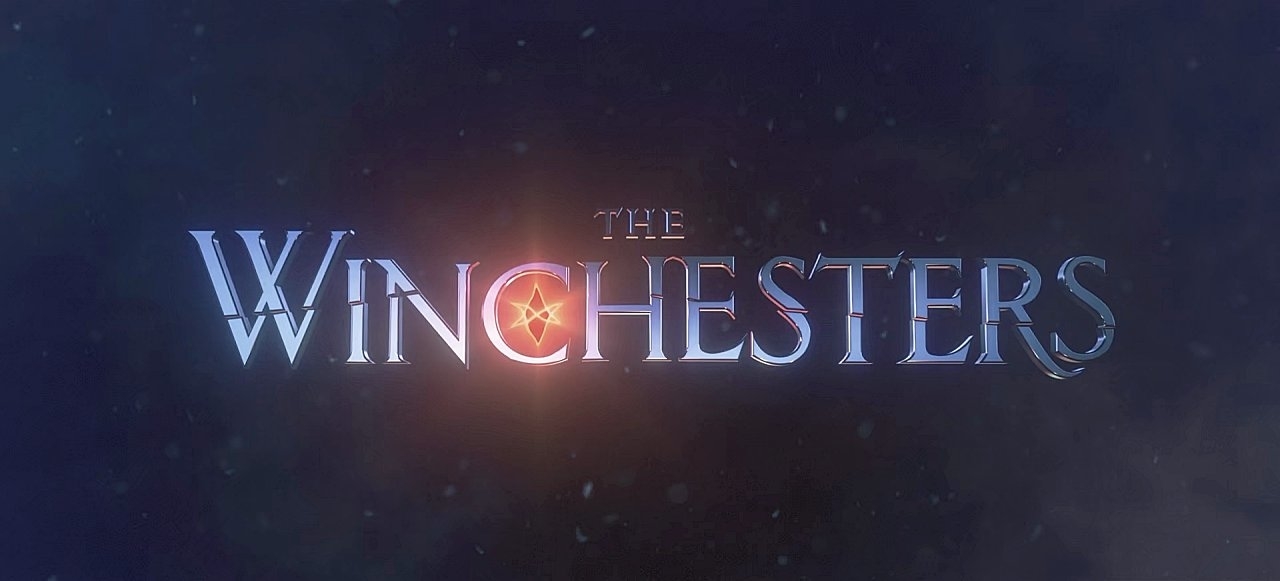
Sadie Witkowski: Would you like to introduce yourself?
Gabe Garza: Sure. My name is Gabe. My screen credit is very long as Gabriel Alejandro Garza because there were five Gabriel Garza’s on IMDb and I got tired of being asked about the pop documentary that I didn’t direct and the National Geographic special that I didn’t produce. So I was like, I’m just gonna put my full name in there, and they’ll know who I am.
I have written for The Winchesters. Yay! Before that, I wrote for another CW show called The Flash for about five years. I was an executive producer on that. Before that, I actually came out of half-hour [programs]. I co-created a sitcom for Nickelodeon called Bella and the Bulldogs. Then before that, I worked in animation, and Nickelodeon. I’ve also done a couple of features, which means I’ve sort of touched a little bit of every part of the industry. Geek stuff is my favorite thing to do.
There was a time there where I had to decide to move from half-hour to one-hour [programs], so I looked to the life-size Yoda in my office and said, “What would you do?” He said, “Follow the force.” So it’s led me here.
Sadie Witkowski: Let me ask you about your work on The Winchesters. Have you seen all the episodes of the original Supernatural mothership?
Gabe Garza: I have not seen all the episodes. First of all, it’s an amazing show. I admire it and everything I’ve seen about it, I love. I was a big fan for the early seasons back when it was, not TiVo, but like your digital cable would give you the lane knockoff – their brand version of TiVo. I would watch that way. So I watched much earlier than I was a professional writer, because the show’s been on for so long. I was amazed by it and loved it. Everything about it just came out, in a lot of ways, fully baked, which is rare for a new show. Like it just was already what it wanted to be. Then it continued to evolve in such an interesting way over the years to stay relevant. But because there are a lot of episodes, at a certain point, I did fall off. It became more serialized, so it became harder to jump back in.
My brother is a ginormous Supernatural fan. Like, really! Like he’s never cared about anything I’ve done but he lost his mind when he found out about this. So, just being around him, I would absorb a little bit about what was going on. On The Winchesters, we had some writers who had seen every episode, definitely. They were like an encyclopedia, or they could easily look up what we needed to know, in terms of how something had been done. We also had, obviously, Robbie Thompson, who worked on Supernatural, and wrote some of my personal favorite episodes. He obviously knew a lot about it, and he had a line to the original creator, Eric Kripke. And Jensen was a big part of the show, and he was on zooms with us and everything. So there was a good balance of that. Then other people who were more of fans of what it was, but had not seen every episode. But they were just fans of the bullseye the show is aiming for. Then you also had people who were a little less familiar, but they were very versed in genre writing.
I think that’s what’s needed for a balance because the original show had many, many, many, many hundreds of episodes. If you had just tried to do Supernatural [over again], without all the cast and all that, it wouldn’t have worked. You needed to find a way to advance it from where it was.
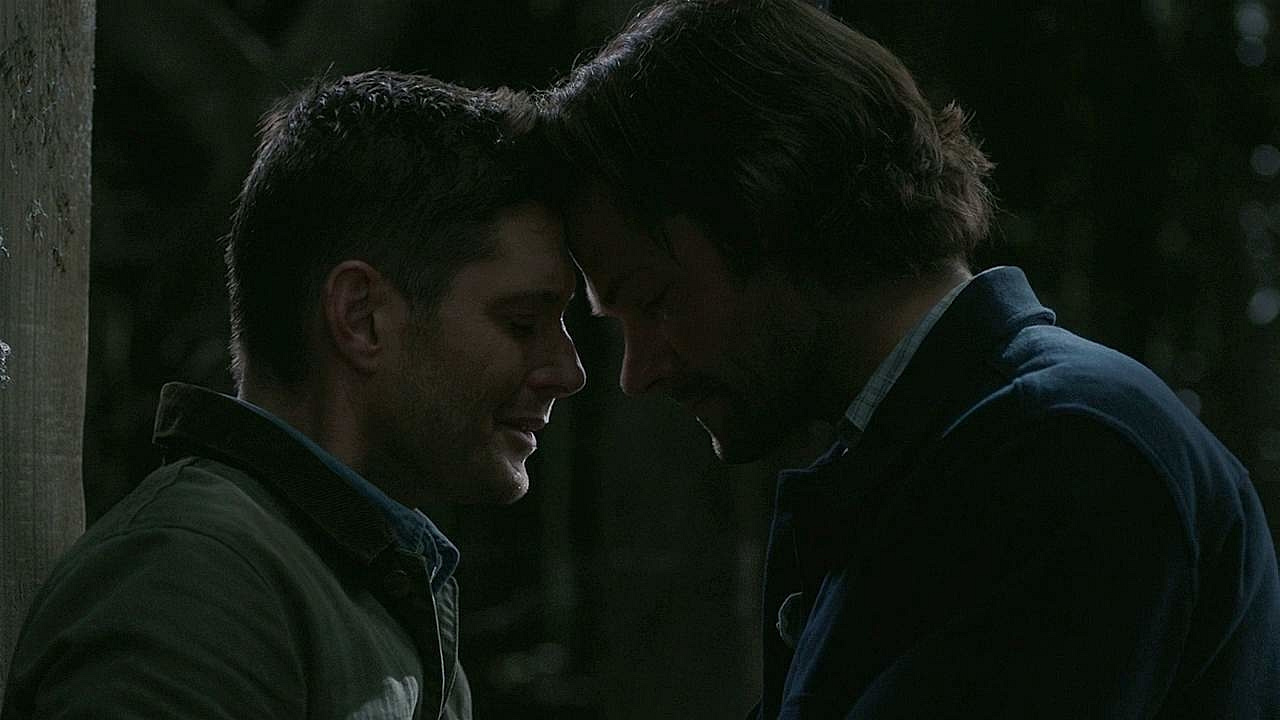
So we had a good mix of people from all different points of views with different levels of familiarity, to sort of brainstorm that.
Sadie Witkowski: It sounds like the way that you built the writers room allowed you to have that fresh perspective. You didn’t have to expect the audience to have seen 327 episodes to know who these characters are, or care who they are. Because you need to be able to have fresh people step in, as well as longtime fans essentially.
Gabe Garza: Absolutely. That’s the key; it has to work for both. What a challenge, right? Like you’re saying, you’ve got to please people who have seen 300 episodes of this show. And that’s just the produced stuff. You want to talk about the forum theorizing, and the fanfiction, and how much more content in some of these people’s heads for the show. You have to please them without really having the original cast. And you have to make [The Winchesters] for people who haven’t seen [Supernatural], because if it’s only for Supernatural‘s audience, then only those people will be able to watch it. But you want it to be also for people who are new to the show and can discover it in its own right. So that balance is very tricky. So often, once it worked for everybody in the [writers] room, and everybody was excited for something, you knew you were on to something. Robbie Thompson, our showrunner, and David Goodman, our number two, were very good at the unenviable task to balance those two things.
Sadie Witkowski: Because, as you mentioned, you didn’t really have the original cast. Did you have to be flexible in the writing room in how the new cast was finding their characters as well as you writing out these stories?
Gabe Garza: Yeah, and that happens on any first season show. Again, what was so remarkable to me about the original series is how Sam and Dean evolved. I think the [writers], especially for the comedy [from] Dean, wrote towards the actors’ strengths. But so much of it was there from the get go. Usually what happens in a show is you do your best to get there. But then once you start spending time – again, why it’s important for writers to spend time on set – once you start spending time with the actors, you’re seeing what they do.
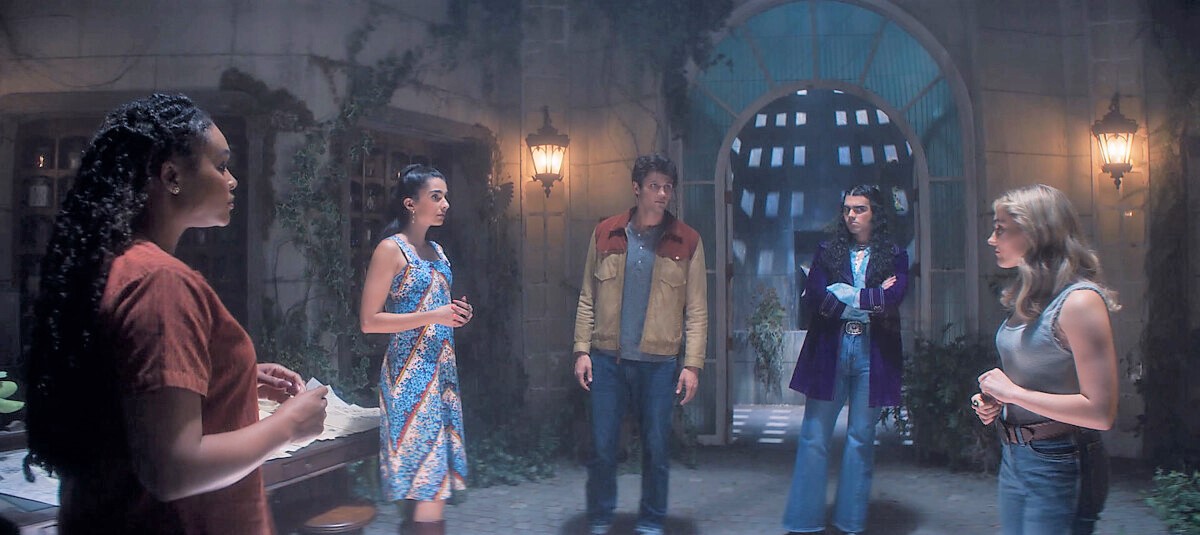
You’re seeing what they do between takes. You’re seeing the stuff they do off to the side with each other where they’re just goofing off. You’re talking with them while they’re setting up lights, and you’re seeing what’s in their heads and how they tick. And you really do start to understand, “Okay, we have this idea for the character.” We can keep that idea, but we can bring in a little bit more of what this actor’s special sauce is, and that’s gonna come across as so authentic. I think it’s part of the reason why you really connect with some characters and not others; I think actors that are able to understand what the character is, and collaborate in some way with the creative team and bring a little something to that. Not taking it off in a different direction, but just being part of that process. Then there’s a real person that’s a part of this imaginary person. That’s how something just feels more real.
Sadie Witkowski: Right. Because a lot of actors think, “Oh, this is an aspect where I recognize parts of myself in this character.” That’s because both they’ve been thinking and sitting in that head for a long time. They’ve also worked with the writers to think about ways they can pull those elements in even stronger, essentially.
Gabe Garza: Yep. It’s a big collaborative process, which is important. I’ve been fortunate to be on so many shows where writers were involved with the post-production, especially in half-hour television where you’re workshopping jokes with actors. Everything’s better when everyone knows each other and people can feel like they can collaborate freely. That’s how you get the best thing. Shooting in New Orleans, you’re always going to have a distance issue. You get a great look. It’s not [like] everything [else that] shoots in LA, which is great. But there is always that distance barrier that is going to affect it.
I think the reason why we watch television is you really are inviting characters into your home every week. There are some shows where you feel like, “I need to spend time with this cast every week; I just need to see my buddies.” That’s really the stuff that is the smash-hit homerun in television. A big part of that is those characters and connecting with them. And the character on a television show: it’s part the director, it’s part the actor, it’s part the writer, it’s part the editor, it’s part a bunch of people. If you have all those people who actually are employed close to each other and able to work together, those are some of the best characters. I think that’s one of the reasons why network TV was so successful. Whereas if you look at a lot of streaming stuff, there’s the big hits, but by and large, nothing is hitting it quite what network TV was able to do for so long. Because the vast majority of streaming shows, you don’t even get to know most of the people on your crews. I’ve had better written scripts because I got to know the art department on my show. It all just feeds each other.
Sadie Witkowski: Yeah, I think you’re totally right. It’s like seeing your friends for dinner once a week or something.
Gabe Garza: Yeah and even when the shows end, I don’t feel like those shows are over in my head. Those characters are off doing something still. They get to do it away from cameras now but they’re still off doing it. And that’s something that’s special that happens with television. That special soup of how that’s made is from a lot of people working together and really putting their heart and soul into it and collaborating.
Sadie Witkowski: Yeah. So speaking of shooting on location, did anybody from The Winchesters get to go down to New Orleans and spend some time on set? Or was it just too fast of a turnaround?
Gabe Garza: No, we did. Robbie and David, our number one and number two, would probably be more privy to the logistics of if that was an easy ask or something they had to convince someone to spend the money on. But we were able to do that. I’ve been to many different kinds of sets and went to this set. Everyone went down. Robbie was down there plenty of times. The cast and everybody, we all got to know each other. We all got to shoot in New Orleans, which is its own adventure. It really is a baptism by fire in a lot of ways.
A lot of the things that were talked about on set, and some of that synergy, would have made its way into a theoretical season two. I think there were particular moments throughout season one where you saw all the pieces clicking really well. I think that would have been built upon in a great way, because of that sort of relationship that have been formed between cast, crew and writers over the course of season one – which kind of takes a season one to happen.

So I was fortunate enough to be there. We had everyone go down for their episodes. Having seen TV made a few different ways, I can strongly attest that if people are interested in the most successful product, it really is the best way to [spend] very little to set yourself up for success.
Sadie Witkowski: Definitely! My husband was actually born in New Orleans, so I can imagine. The original Supernatural, filming in Vancouver, had rain. That was really difficult. But for you guys, what if we turn that up to 11 by doing it in a literal swamp? Was that what it was like?
Gabe Garza: New Orleans was insane in all the best ways, and also all the insane ways. I remember getting to the hotel, the Marriott or wherever it was, and I thought “Wow, it’s pretty empty.” It’s July, it’s summer. This is the peak vacation time. I was talking to the front desk clerk, and he said, “No one summers in New Orleans.” I said, “Oh… well, we’re about to shoot a season of television here.” For those who don’t know summers in New Orleans, it was over 100 degrees with something like 91% humidity. You would have that heat with torrential rain that at times, my windshield wipers were on the full setting and I still couldn’t see. I had to pull over because it was impossible to see even with the windshield wipers. You had flooding. That city – I can only imagine the nightmare that was Katrina. I can only imagine because [with] the normal heavy summer storms, you would have so much flooding. On top of that, there are so many other natural obstacles from the environment. We had scenes in episode two that were outdoors at this hippie commune. A lot of scenes outside and you’re dealing with that heat and mosquitoes and ticks.
Sadie Witkowski: Oh, and in vintage costumes with long pants of corduroy or a leather jacket…
Gabe Garza: Yeah, a bayou, like a swamp, was where we could find a place that could pass as a commune.
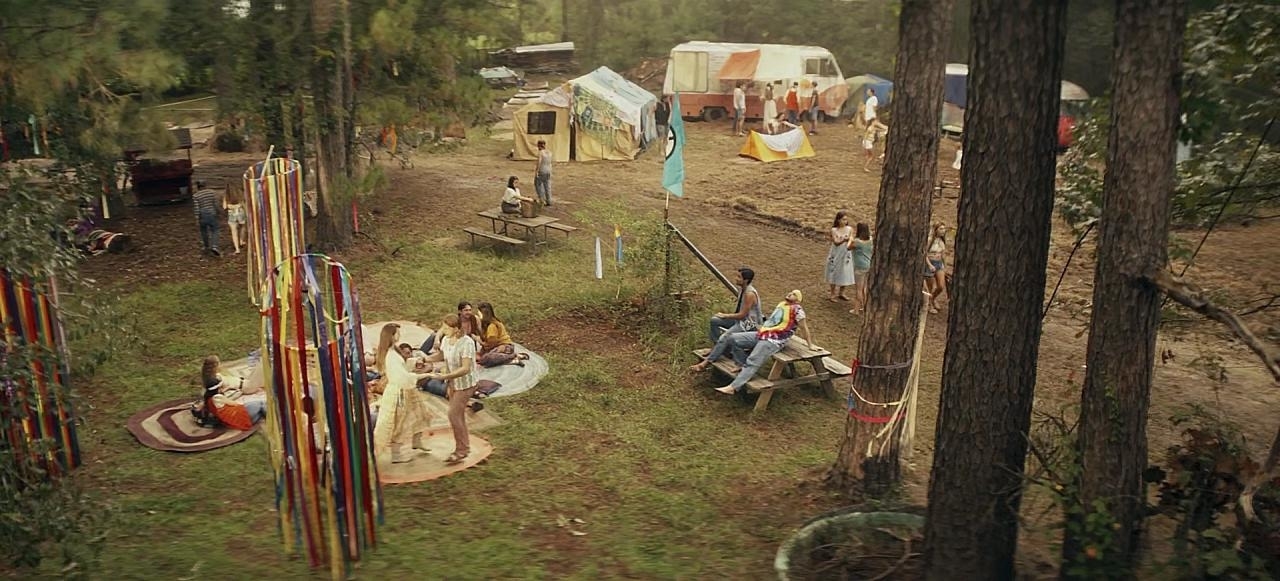
There were times when the van got water up to the hood, and the director had to drive the actors through it (we had some people getting their license on this show that came from New York and didn’t have it). So it was wild. I remember after I went down for episode three, which I wrote, and I texted the next writer who was coming after me for episode four, I told her, “Just watch Indiana Jones. That’s what it’s like. You just gotta roll up your sleeves. You got to get dirty. You’re gonna get all beat up, and you’re gonna be sweaty, and you’re gonna outrun a boulder at some point. But that’s just what it’s like.”
I will say, the unsung heroes of the show were hair and makeup. The amount of touch ups every five seconds, and you watch the episodes, and you would never know it. I was just in awe. As tough as it was shooting in New Orleans because of some of the conditions, the crew was by far the most talented crew I’ve ever worked with. It blew my mind. If they were not that talented, I don’t believe we would have been able to finish those episodes. Because, until like October, every day was just like going to battle with the elements. It was pretty intense. But it also didn’t look like a normal CW show.
Sadie Witkowski: It had a very strong sense of aesthetic, which I really appreciated. You found a town that is supposed to be as old looking as it should, so the shots make sense.

Gabe Garza: I wish we could have done more. We talked about ways to do this in season two. It was set in Lawrence, Kansas, so we had a lot of small town things. It was so fun. The garage was actually like a real gas station/garage that we bought and retrofitted. So you would be driving around the town and pass it and you’re like, “Oh, this isn’t like on a backlot or anything. This is just like an actual town that we’ve built Millie’s garage in.” The whole experience was difficult in a lot of ways, but also very rewarding and amazing. It was nice to also chart our own path and have our own aesthetic look. I wish we could have leaned more into it because New Orleans proper is so beautiful everywhere. One of the things that I’m sad about not having more seasons of the show is not being able to dive into more of the aesthetic of New Orleans and bring that into the show.

We talked about ways where we could do that. Just don’t go in July!
Sadie Witkowski: I don’t make those mistakes. I don’t even visit in the summer. But I love New Orleans. I think it’s such a cool mix of Spanish and French and American culture and cuisine and architecture. It really makes for a unique setting. I did want to ask how did y’all have to think about retooling the 13 episodes, without the rest of the full season, so you could provide some sense of closure for the show? Did that affect decisions, even within the bigger plan that you might have had?
Gabe Garza: Well, I was actually in New Orleans while the last two or three episodes had been broken in the room that was on set. So because it’s done simultaneously – I’m not the best person to ask for all this, I can kind of speak to the more generalities of it. What I can say is, throughout the whole year, this sort of uncertain formula was circling the show underneath all the other formulas that the show was about, and that was the formula of the makeup of our platform, The CW. So for the entire run of the show, there were whispers in the air that the CW was going to be bought and sold. Anytime a network is bought and sold is huge news. It is a seismic shift for all of their products. But usually, it’s bought and sold to an entity that is making scripted content. The CW actually did wind up being sold, but it was sold to a company that is not primarily in the scripted content game – they’re actually very far removed from it. Shows like The Winchesters are just not the kinds of shows they want to make. They had to, I think, contractually renew a couple shows that were just part of the deal of being sold. But not all of them. It’s very clear [that the new] executives had new directions they want to go. Shows like Supernatural, shows like The Flash… The CW, as we know it, is no longer going to be that ever again. There’ll be new places for those kinds of shows. But all this was happening while we were making the show.
So… not only was it a constant question of ‘how many episodes do we have? Is it 13? Is it 20-something?’ The number moved several times. Even before interviewing for the show, I was told we’re probably going to do ‘this’ amount of episodes. Then you get there and it’s ‘this’ many episodes, and now we’re not sure. The ratings were decent enough, because I worked on The CW for a long time. They were decent enough that in any other year would have been an automatic pickup [for the rest of the season]. You’ve already spent the money for a season, it’s in your interest to keep it going to amortize those costs. But the network just was no longer in the game of making these kinds of shows. The first season of a show is extremely critical. There’s a process that can sometimes compress the creativity to a certain extent. This was another level above that, where we were not even sure if this network was going to exist. There were a lot of people feeling that pressure that weren’t related to our show. But our show was also feeling the pressure because of that, to be able to work with all these people.
I had such a fantastic time in my tenure at Warner Brothers and CW. The executives there really do care about television. Really, really do and it breaks my heart to see that some of the CW folks that are responsible for a lot of the shows that you’ve loved on that network had to leave and that network is no longer going to be what it was. I hope those people will land somewhere else because there was a real need for these kinds of shows. Before the CW, there weren’t a lot of people making them. There was a lot of diversity very early on, in some of these shows, that were aimed for younger audiences, but also had stuff for an older audience.
To get back to your question, “How’s the season going to end? What is Season Two going to be? Are we gonna have a cliffhanger? We have a nice and tidy end – what is that going to be?” Our showrunner had a lot of different versions in his head. Not a lot, but he had a few. That’s what a good boss does. Episode One was all we had, the pilot, and we all started. He had a version in his head for, “This is the story I want to tell, and this is kind of the route it would go,” and then you stay flexible, and you kind of change.
But usually, that flexibility is just about what the story wants to be. We had to deal with the additional flexibility that our network might disappear. So, you know, Robbie had a few things [to juggle], and he was really good at… a writing staff can freak out at times. It’s hard to hold the team together when the sport may not exist next season, let alone will we get to the playoffs. But he did a really good job at saying “Ok, these are the two areas – he could go here [or] could go here. Here is where we’re at”, and then, he would revisit that with us throughout the year. So even though the final decision on that stuff may have come a little bit later, we’d already been familiar with that option, and already been planning for that. It was as easy and as streamlined a process as a season one like that can be for anyone. I worked for a lot of different bosses and show runners, and for a first time showrunner to have all of that stress and pressure… But you can never tell. [Robbie] really did a good job at keeping us very focused on the task at hand and never letting the work-life balance drop. It was really remarkable and admirable. It’s one of the big lessons I took away from working with Robbie. If you can keep a life balance on The Winchesters, with everything that was happening to it, and shooting in New Orleans, with sets being flooded, and all this stuff, then any show can have a proper life balance.
So long-winded way to answer your question that we knew that we were going to have to stick and move a little towards the end. So we always had some ideas of what those moves would be. Then when the word came down, we were already ready to go and everything was ready. We didn’t have to suddenly rewrite a bunch of things or figure out how to make it make sense with things that it doesn’t make sense with.
Sadie Witkowski: Yeah, it’s not totally from scratch, essentially. Did you always know that it was going to be kind of an AU/alternate universe? Was that always the plan: a parallel universe, one of the many that God created?

Gabe Garza: Yes, in that there were… again, Robbie had what he would want when he came into the writers room. That’s what he said to us – “This is the pitch for the show. This is in my head, but we’re gonna leave it open to see if we find something better.” So, there were times when we entertained other ideas of, “Is this a time travel? Is it a dream? Are they all in limbo? Or, you know, is it Lost? Are they on an island?” But we eventually did circle back to the main thing that was the first idea. It was interesting, because you have to ask yourself: “How do I please people that are going to have 300 episodes you can be comparing this to?”, but also… I don’t know if you ever watched the original The Office. When you watch season one of The Office, the American remake, some of those episodes were very close to those British ones. It wasn’t until they could do their own thing that the show really started to sing. That happens a lot, where you’ve got to let the new thing be its own thing. With this show in particular, you have the story of how mom and dad met, which has already been seen in the original show [Supernatural]. Sam and Dean have been a part of that story already. It’s been explored from a lot of different angles. Well, how do you surprise an audience? How do you tell them there’s going to be a reward for watching The Winchesters, and you’re going to learn something new. So there always needed to be a device that allowed us to go off in new directions.
It’s almost like the Star Trek JJ Abrams movie where this… some of these things are just destiny and you’re gonna encounter them still. Some of these things are gonna be versions of what’s happened, they’re canon events. Certain things that have to happen. That would be a way to honor the past. Because if you do have this love for the original Supernatural, you can be like, “Oh, is that thing gonna happen? Or is this gonna happen? Are John and Mary just always destined to be tragic lovers? Is it impossible for them to have a happy ending?” You could explore all these things if it was both a version of ‘it’, but also not ‘it’ specifically.
This is something that I thought Robbie spoke very beautifully about when he first told us his inspiration for the show. He had a relationship with his father and then got to know him and changed that relationship a little later in life. He said that his pitch for this show was from Dean’s perspective. It was if he could have given his father a happier ending. That’s what this show was. And it was Dean trying to do that.
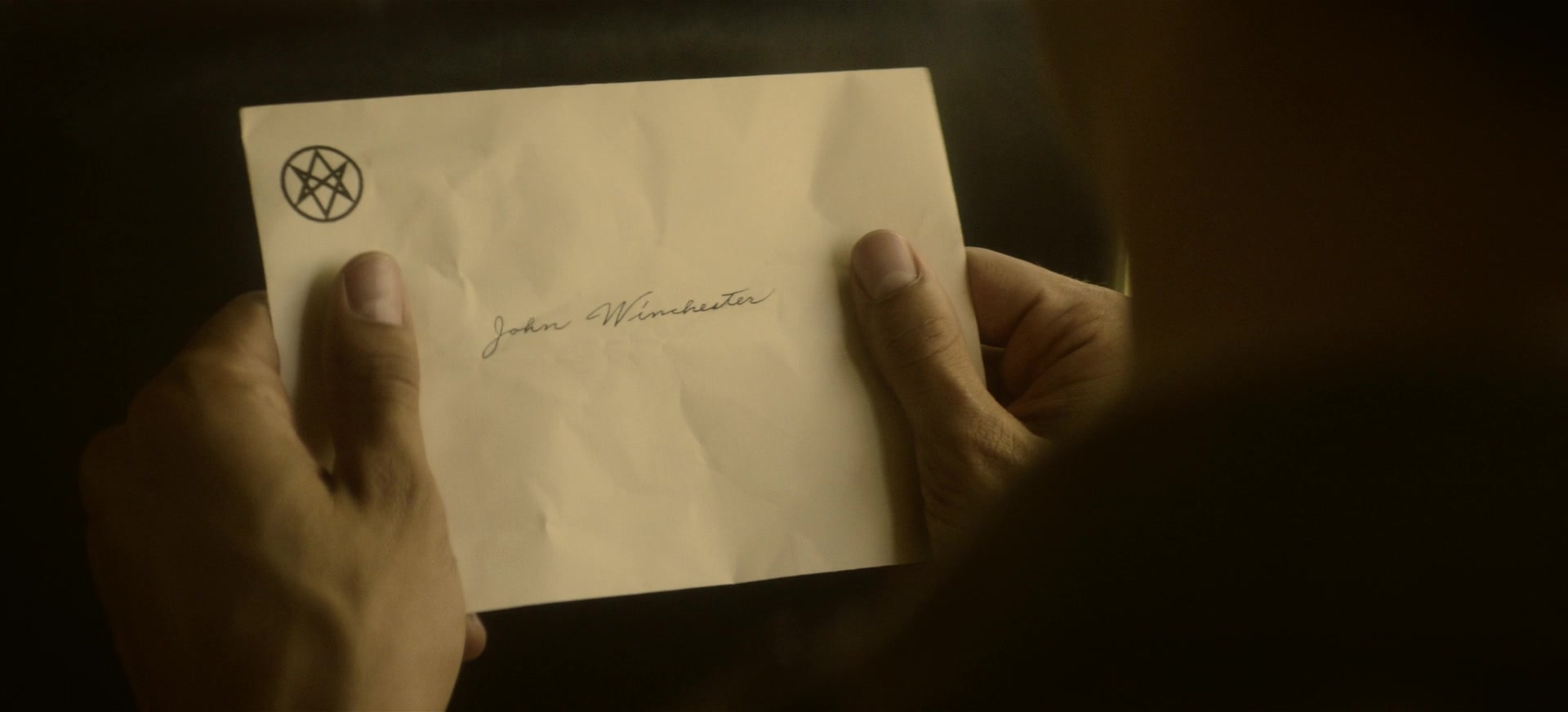
I think emotionally that’s something that a lot of people can understand, and kind of grounds it in a way that makes it okay that it deviates from 300 episodes – but requires that it deviates from 100 episodes. But it’s not coming from a place of, “We just want to make more Supernatural and make more money.” It’s coming from a place of, “No, this is a character who wants to give his parents a happy ending.” There’s gonna be a lot of obstacles to that, because when you meddle in space and time, things are gonna happen. We had so many talks about fate versus free will and this idea that, is it always a tragic love story? Is it a fixed event? Or could they overcome it?

And, if at some point in the series they were to learn that every John and Mary ends in tragedy, would they stop dating each other? Would they break up? So there’s a lot of really great emotional places, and things that we had pitched out that were potentials that you could explore in that concept. By Episode 13, this all became very clear to the audience and up till then it was a little bit of… “Uh, they’re gonna think we just haven’t seen Supernatural.” But the fun is, if you’re a brand new person, The Winchesters and the way he did it was so smart. You could just jump in, and you didn’t have to do 300 episodes of homework; just enjoy one season on the show. But if you were a fan of Supernatural, there’s this extra fun thing of like into the spider verse. And I think The Winchesters just had a lot of potential to go to a lot of different places, had it continued.
Sadie Witkowski: Was there any consideration or worry about how fans might react that Dean was in the show, but Sam wasn’t? Were you worried about the fans reactions?
Gabe Garza: I think it’s safe to say that that was probably something that everybody thought of. But just because something isn’t a part of something now, doesn’t mean it won’t be a part of it in the future. But also, it wasn’t even so much about the fact that Dean was in the show. It was about these new guys and how do we make people fall in love with the new guys? Obviously, the emotional underpinning of Dean’s fanfiction of creating the show was a big part of the emotional pitch for the show and underneath everything. But it really was just about the characters that were on the poster. It was about the Scooby gang, and it was about the love of Mary and John defying all odds, as you know Winchesters are known to do from time to time, and putting that first and foremost in our minds. Put another way, if people saw The Winchesters, and all they said was ‘Sam’s not in this, so I’m not interested’ and nothing else was getting them interested, then that’s a bigger problem. Our job was to make you fall in love with the new guys. And we focused on that.
Sadie Witkowski: Do you think Dean would have still been involved in season two? Or would we have truly transitioned off into our new cast?

Gabe Garza: I think some of him passing on the journal at the end is a little ‘bit’ to get Dean’s life lessons and voiceover. Even though he perhaps was kind of slapped on the wrist, ‘you shouldn’t be doing this man’. But I mean, come on. It’s the Winchesters!
Sadie Witkowski: He’s gonna break the rules again. Yeah.
Gabe Garza: I mean, come on! The thing is, also, all those actors really enjoy working together. That’s one of the reasons why I think Supernatural lasted for so long. I don’t know how many people know this, but everyone who worked on Supernatural loved working on that show, and for the vast majority that I’ve heard, they also just really love the show and they love the characters and I think that just comes across so clearly. One of the reasons why it came out fully baked, I think, was that it wasn’t just a paycheck for them, and you can tell. You can see at conventions and you can tell they really, really care. Not just about the fans, but about the show. That’s because they just love those guys so much that they play and that they get to act with. So, again, in the 300 episode version of The Winchesters, I would not have put my money on, you’ll never see Dean again. That just personally, I wouldn’t put my biggest odds on that.
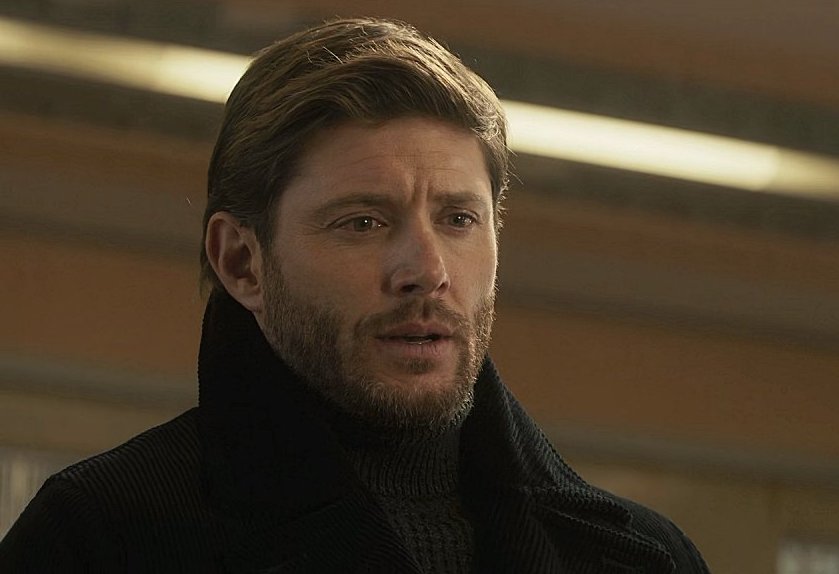
Sadie Witkowski: Right? Maybe you can’t even keep Jensen off set. So who knows?
Gabe Garza: Yeah, and Jensen, by the way, I had very little interaction with him. The higher ups had a lot of interaction with him and his production company and with Robbie and everything. But he did talk to the writers from time to time. Man, that guy is just such a pleasant human being to be around. I remember what someone in the room said, after the zoom [call], where we all were just enthralled. They said [jokingly], ‘You know what, it’s a shame he’s not more charming. Because he could really have a career.’ He’s the most charming, cool, unthreatening… not intimidated by him, but just, as a guy who came from half-hour [programming], I still feel like his comedy chops are underrated. He just understands how to play that grounded character but really pushes comedy when he needs to so well. I hope he’s getting a chance to flex his comedy muscles on [The Boys]. But if not, someone’s got to give him some action comedy movie where he can do his thing.
————————————————————————————————————————-
This interview is also somewhat of a backdoor announcement for season 2 of In Defense of Fandom. In the new season of the podcast, I’ll be talking about how our favorite shows came to a conclusion…. And whether we liked that end or not.
Check out the first season on Apple, Spotify, or wherever you listen to podcasts. And if you want your voice to be featured in the new season, you can let me know about your favorite (or least favorite) TV show ending with this survey.
You can also sneak a peek at my earlier podcast adventures!
Interview with Gotham Knights Costume Designer Jennifer May Nickel
Fun Times at Family Business Beer Company’s “Family Reunion”
“Origin Stories: How Supernatural Fans Found the SPNFamily”
New Supernatural Podcast Sheds Light on the SPNFamily
Check out The WFB‘s The Winchesters Page, your portal to Episode Reviews, Photo Galleries and News on The Winchesters!
Some screencaps by Raloria@livejournal. Editing and illustrations by Nightsky.


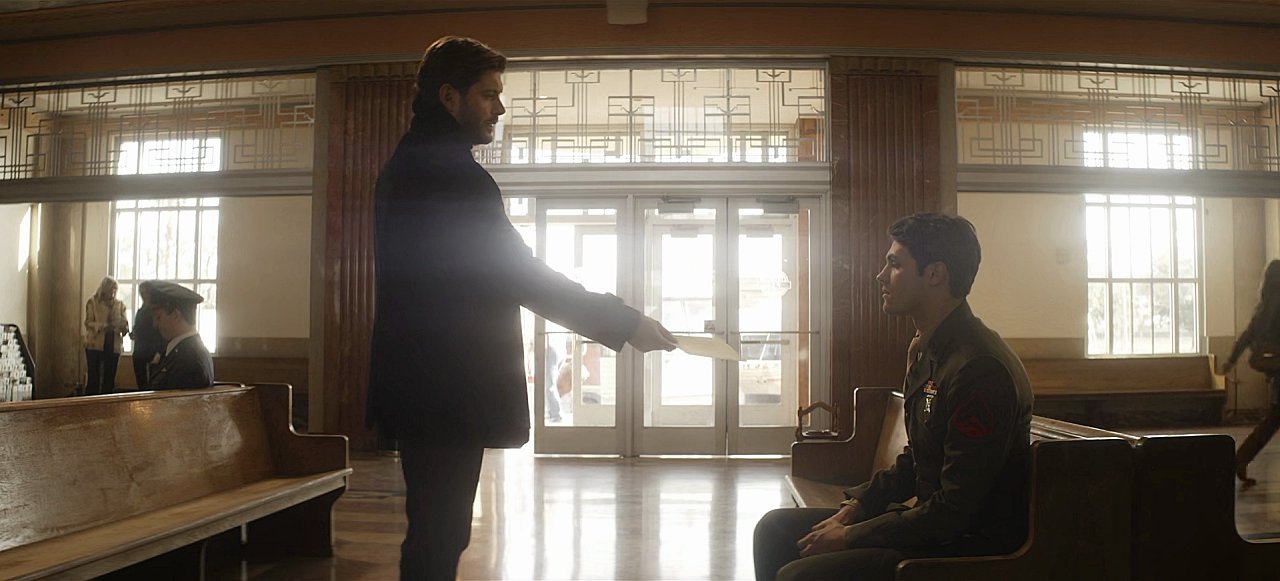

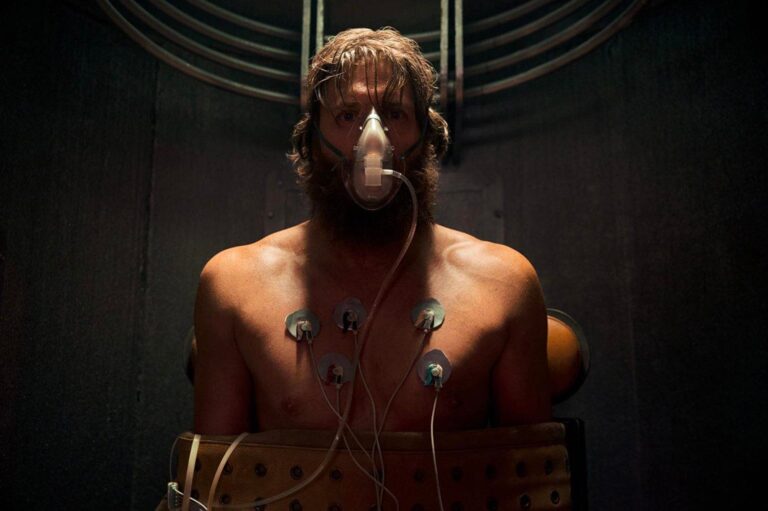
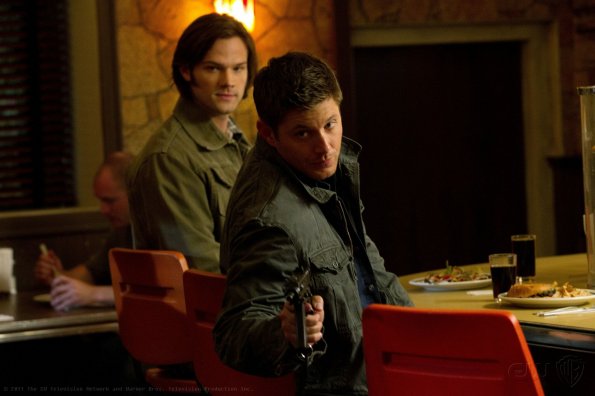
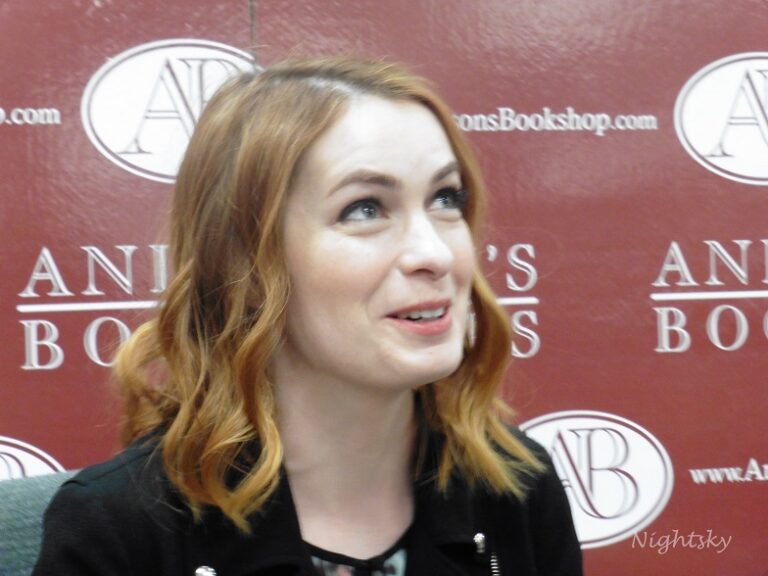
Leave a Reply